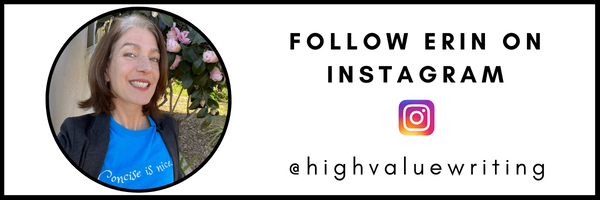TL;DR:
- Difficult conversations with students or parents are here to stay.
- We can improve the outcome of these conversations with strategies designed to minimize emotional responses.
- Consider using the word “you” with care and purpose when discussing negative or critical topics.
- Use intentional verb choice to affect the tone of your messages or conversations.
- Focus on the goal or outcome, not the individuals involved, when having tough conversations or writing sensitive emails.
Difficult Conversations Aren’t Going Anywhere
Ah, the motivation and inspiration of a new year and for many, a new semester. Spring semester will bring with it renewed hope, the fresh perspective of a new year, and yet… something that never seems to change: more tough conversations with students and parents. Our communities still face issues on many fronts, making many students and parents more on edge than usual—and thus, potentially more sensitive to the emotional baggage of some words. Fortunately, by using a few intentional writing strategies, we can help ensure difficult conversations stay productive.
We Can Impact the Outcome of Difficult Conversations with Intentional Writing/Speaking Strategies
Whether you’re answering a parent’s question through email, responding face-to-face with a student who’s upset about a grade, you can use purposeful word choice to reduce the “heat” in these conversations and help conversations stay constructive. We all know what happens when a reader or listener gets defensive: the conversation goes downhill from there. We can prevent this through intentional word choice.
Part of this has to do with considering the two sides of meaning:
- Informational Meaning: The information we get from the words we read. This is the type of meaning we usually think about when we write.
- Emotional Meaning: This other type of meaning can often feel even more important than Informational Meaning. To think about the emotional meaning of a message, consider how it will make your reader feel—not just how it will inform them.
Strategy 1: Use the Word “You” with Care and Purpose
One word that often has more power than we realize is the word “you.” This word can easily make us feel complimented and supported—or accused and alienated. Consider these two examples:
- The idea you shared in yesterday’s meeting has already helped me save time!
- The idea you shared in yesterday’s meeting doesn’t seem helpful at all.
For me as a reader (or listener!), the first sentence is A-OK, but the second makes me feel defensive. Since the sentences were almost identical, other than being positive or negative, we can learn about using the word “you.” In positive situations, use as much “you” and “your” as possible! This helps support your readers and listeners. In negative situations, however, try taking the word “you” out altogether. Huh? Yep, it’s possible:
Strategy 2: Steer the Conversation Away from Individuals and Onto Outcomes, Events, and Goals
In negative situations, steer the spotlight away from any individuals and onto the matter at hand—the goal, project, assignment, outcome, email, etc. It’s actually not too hard to do! Check out this revision example:
Before: Your child actually did not say that; you seem to have the wrong information about the altercation in class last week.
After: Actually, the conversation leading up to the altercation was about whether or not one of the participants had cheated on their girlfriend.
In this example, we can see how we steered the attention away from “you” or “your child,” and onto the conversation itself. While we do still want to be clear and transparent about who did what, we can open conversations about what happened from an objective standpoint and avoid getting personal—so the conversation can open more smoothly and lead to more solutions.
Other examples might include:
Before: Your email didn’t mention that.
After: I didn’t find that info in the email.
Before: You didn’t include a timeline in your report’s index.
After: The report’s index needs a timeline.
[scroll down to keep reading]Strategy 3: Use Intentional Verbs
Verbs = Power. Verbs contain more Informational Meaning than most other words, making the use of strong verbs a concision strategy as well. But verbs also contain more Emotional Meaning than most other words—making them powerful tone-setters.
I could ask a student or parent to “participate” in an activity or session with me, and they might want to. I could ask them to “attend” something, and they might think they have to. Or, I could ask them to “join” me in an activity, and they might think: Hmm, that sounds kind of fun. The verbs participate, attend, and join might share Informational Meaning, but they differ in Emotional Meaning.
Leveraging tone through verbs can help us make sure our readers stay empowered. Notice the way “attend” creates an obligation, while “join” allows for agency and choice, for example. Students, parents, and anyone who’s upset usually respond more positively when writers/speakers DON’T take away their own agency, choice, and power. When possible, use verbs that show respect and allow your reader/listener to retain some empowerment. This will reduce the chances of a defensive response. Keep your eye on those verbs!
Imagine the Real: Writers and Speakers as Readers and Listeners
Finally, we can use a trick when we’re writing—to check tone and look out for writing that can create defensive reactions. We can “imagine the real”—in this case, imagining someone’s reaction when they read what we’ve written. Anytime you think you’ve created an email that might make a reader defensive, try reading it aloud in a snarky tone before sending. The snark and sarcasm in your voice will help you discover the parts of your text that might create issues.
For example, if I say, “You should’ve received all the information you need in last night’s session” in a regular voice, it just sounds neutral. But when I say it aloud in my head with some serious snark, the word “should” really pops out. As the saying goes, don’t should all over yourself! Well, let’s not should all over other people either—and maybe they won’t get so defensive!
About Erin Lebacqz
Erin Lebacqz helps you write with clarity, confidence, and emotional intelligence. Erin’s curriculum and book, High-Value Writing, capture Erin’s 25 years of experience working with business and academic writers around the world. Erin’s interactive writing workshops and presentations engage learners in purposeful discussions that respect their desire for intellectual growth while also providing practical strategies learners can immediately apply in the workplace.
Erin has trained and taught in the United States and Asia, in the finance, manufacturing and trades, non-profit, higher education, healthcare, and public sectors. She holds a BA in International Relations, an MA in Professional Writing, and various teaching certificates.





